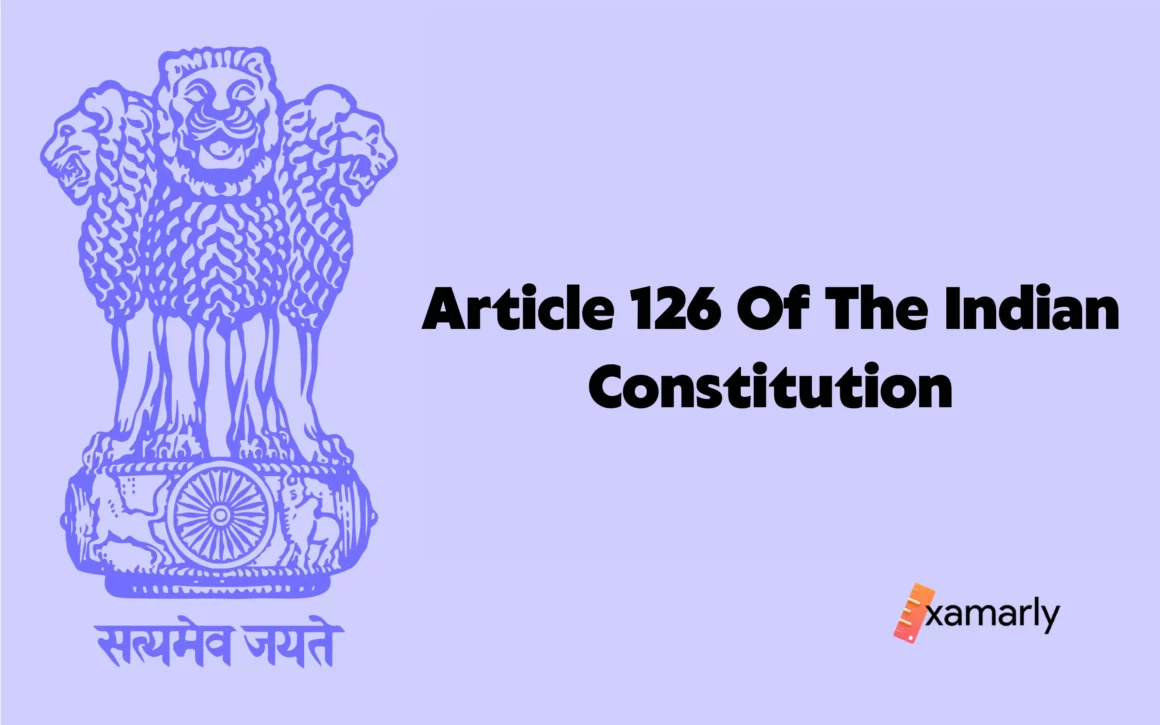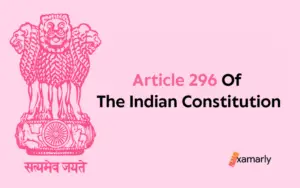Overview
- Overview
- What Does The Article 126 Of The Indian Constitution Say?
- Summing Up
- FAQs
- Who will be the next CJI of India?
- What is Article 126 of the Indian Constitution in a nutshell?
- How many clauses are there in Article 126 of the Indian Constitution?
- Has Article 126 of the Indian Constitution been amended at any time?
- The appointment of an "acting Chief Justice of India" is outlined in which Article of the Indian Constitution?
Article 126 of the Indian Constitution talks about the acting Chief Justice of India in a scenario where the seat of the Chief Justice Of India is vacant for a while.
Article 126 can be understood as being effective in the same analogy as the other Articles talk about the actions of a Vice-President in a case where the President of India is unable to discharge his duties.
We will go through Article 126 of the Indian Constitution in detail and will learn all about it by analysing the clause and the sub-clauses present in it.
What Does The Article 126 Of The Indian Constitution Say?
Let us quote the Article as it is in the constitution and get to know more about it in detail.
126. Appointment of acting Chief Justice.—When the office of Chief
Justice of India is vacant or when the Chief Justice is, by reason of absence or
otherwise, unable to perform the duties of his office, the duties of the office
shall be performed by such one of the other Judges of the Court as the President
may appoint for the purpose.
Article 126 of the Indian Constitution talks about a scenario where the Chief Justice is not able to discharge his duties. He may be absent or maybe his seat has got vacant for a while for any reason.
Then, in such a scenario, any other Judge from the panel of Judges can act as the Chief Justice Of India and discharge the duties of the Chief Justice on his behalf.
Such a Judge has to be appointed by the President Of India. Whoever the President appoint will discharge the duties of the Chief Justice Of India.
Summing Up
Article 126 of the Indian Constitution talks about the appointment of a Judge from the panel of Judges in a case where the Chief Justice is unable to discharge his duties and his seat has got vacant.
We can conclude that the President of India holds the supreme power of decisions in the hour of need.
Related – Article 142 Of The Indian Constitution: Complete Justice
FAQs
Who will be the next CJI of India?
The appointment of Justice Dhananjaya Y. Chandrachud to the position of Chief Justice of India will take effect on November 9, 2022, and was made by the President of India. After the retirement of the current Chief Justice of India, UU Lalit, Justice Chandrachud will succeed him as India’s top judge and become the country’s 50th Chief Justice.
What is Article 126 of the Indian Constitution in a nutshell?
In the event that the position of Chief Justice of India is unfilled or that the incumbent Chief Justice is unable to carry out the responsibilities of his position for any reason, the President of India has the authority to appoint one of the other judges on the Supreme Court of India to fill the position and assume the responsibilities of the Chief Justice of India.
How many clauses are there in Article 126 of the Indian Constitution?
There is only one single clause in Article 126 of the Indian Constitution.
Has Article 126 of the Indian Constitution been amended at any time?
No, it has not been amended since its inception.
The appointment of an “acting Chief Justice of India” is outlined in which Article of the Indian Constitution?
Article 126 of the Constitution provides for the appointment of an acting Chief Justice Of India.






